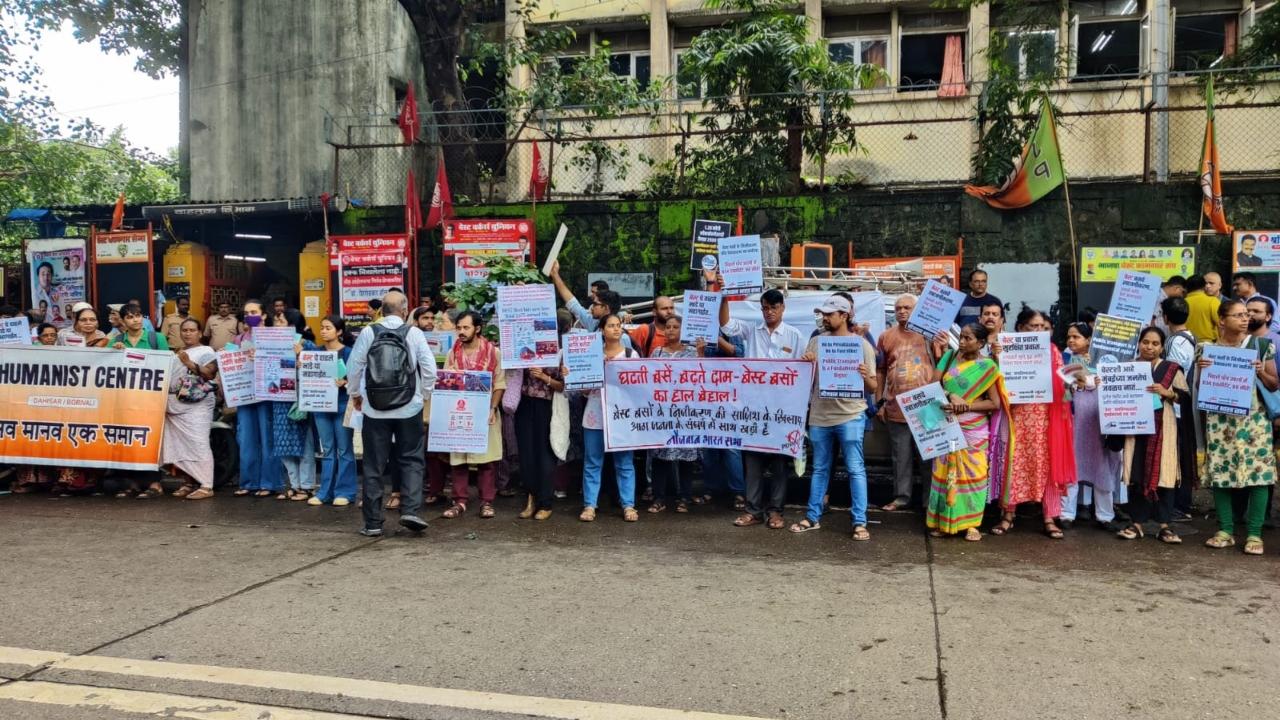These include rolling back the recent fare hike, cancelling the decision to monetise depots, ending the wet leasing of buses, and implementing the BMC chief’s February 2024 decision—allowing BEST to be subsidised and operated under the BMC Budget

City-based associations in Mumbai gathered at Wadala
Thirteen city-based associations in Mumbai gathered at Wadala on Friday, uniting in a bid to save the BEST undertaking and pressing for a four-point demand. These include rolling back the recent fare hike, cancelling the decision to monetise depots, ending the wet leasing of buses, and implementing the BMC chief’s February 2024 decision—allowing BEST to be subsidised and operated under the BMC Budget. The groups stressed that the undertaking must maintain a minimum fleet of 6,000 buses to adequately serve the city's commuters.
The thirteen associations include Aamchi Mumbai Aamchi BEST, Fridays For Future Mumbai, Habitat and Livelihood Welfare Association, Humanist Centre Jan Haq Sangharsh Samiti, Lokraj Sanghatana, Loktantrik Kamgar Union, Mulbhut Adhikar Sangharsh Samiti, Nagari Niwara Vichar Manch, Naujawan Bharat Sabha, Nivrut Kamgar Sanghatan, Pudhe Chala, and Purogami Mahila Sanghatana.
“Public transport is a fundamental right for the citizens of this city. For decades, BEST bus services have been the lifeline of Mumbai, enabling working people to commute to jobs, schools, colleges, hospitals, and other destinations efficiently, safely, and affordably. That is why Mumbaikars once regarded BEST as their own. But now, under the guise of ‘cutting losses,’ BEST has invited private contractors, doubled fares, and reduced its fleet—deepening the crisis, with ordinary citizens bearing the brunt,” said a note from Aamchi Mumbai Aamchi BEST.
“The wet-lease model has already proved to be an unmitigated failure for BEST. Even with a largely privatised fleet, the transport division recorded a loss of Rs 2,160.17 crore in 2022–23. This model has also imposed social costs—ranging from service breakdowns and accidents to increased wait times and falling ridership,” the note added.
“Private contractors often compromise on safety and maintenance to boost profits. The result: more breakdowns, bus fires, and fatal accidents. Drivers are overworked, underpaid, and frequently untrained, putting passengers at risk. The experience of wet leasing has been negative for both commuters and workers. Fares have surged without delivering any tangible benefits. Service quality has deteriorated, especially in low-income areas. Long routes have been cut, leaving passengers stranded and forcing them to switch buses or transport modes—raising commute time and costs,” it noted.
BEST officials said there is a long-term plan to expand the fleet and streamline route operations.
 Subscribe today by clicking the link and stay updated with the latest news!" Click here!
Subscribe today by clicking the link and stay updated with the latest news!" Click here!










